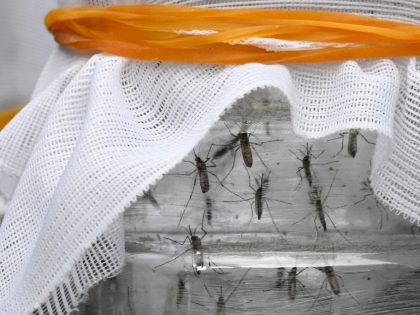
Environmental Havoc Is Making Colombia’s Mosquitoes Deadlier
Colombia hosts many of the world’s most dangerous species of mosquitoes. Climate change is making them more prevalent.
Kurt Hollander is a writer and fine art/documentary photographer. Originally from New York City, he has been living in Cali, Colombia, for the past ten years, where he has just finished writing a book called Cali Caliente: A History of Violence.

Colombia hosts many of the world’s most dangerous species of mosquitoes. Climate change is making them more prevalent.

In response to violent drug gangs, Colombians have taken to employing private security who are trained to kill and outnumber the police and the army. But their close ties to the far right and the cartels means they often only make Colombians more unsafe.

In Colombia, coastal erosion caused by a combination of climate change and environmentally destructive industrial agriculture is displacing the country’s poorest citizens. But the scale of the disaster means that it has no easy solutions.

Colombia recently discovered mass graves in a 150-year-old cemetery in the city of Cúcuta. The bodies, many of which were smuggled in during this century, reveal connections between right-wing militias, business, and the state.

Next month, Cali, Colombia, will host the annual environmental conference COP16. The city’s right-wing mayor has called upon thousands of army and police officers in preparation, both of whom have a long history of suppressing environmental activists.

Recently, Colombia discovered mass graves in a cemetery over 150 years old in the city of Cúcuta. The bodies, many of which were smuggled into the graveyard this century, reveal unpleasant connections between right-wing militias, business, and the state.

Colombia’s riot police, the ESMAD, have a sordid record of abuse and extrajudicial executions of protesters. President Gustavo Petro is trying to reform the force — but he faces an uphill battle.

In the 1970s and early ’80s, NYC’s racially and ethnically diverse working-class neighborhoods nurtured groundbreaking rap, salsa, and punk music. Real estate speculation did away with the social conditions that made those scenes possible.

President Gustavo Petro has pledged to transform Colombia’s energy industry in a greener direction. But the country’s heavy economic dependence on hydrocarbons, illustrated by the legacy of its massive refinery in Barrancabermeja, poses steep challenges.

The Sinú River in Colombia has provided food, water, and transportation to local people for thousands of years. In recent decades, wealthy landowners used violent force to push through construction of a dam that has caused disastrous flooding in the region.

For too long, multinational energy companies have extracted resources from Colombia’s Guajira Desert region without sharing any of the benefits with indigenous residents. A new green initiative spearheaded by President Gustavo Petro aims to change that.

Cali, Colombia, is among the most unequal cities in the world. The story of its inequality is written in its architecture, replete with sprawling favelas, fortified luxury homes, and intimidating bunkers that belong to cartel bosses and police alike.

From the UFC to Hollywood, MMA and other ultra-brutal martial arts have gone mainstream — hand in hand with the rise of the far right.